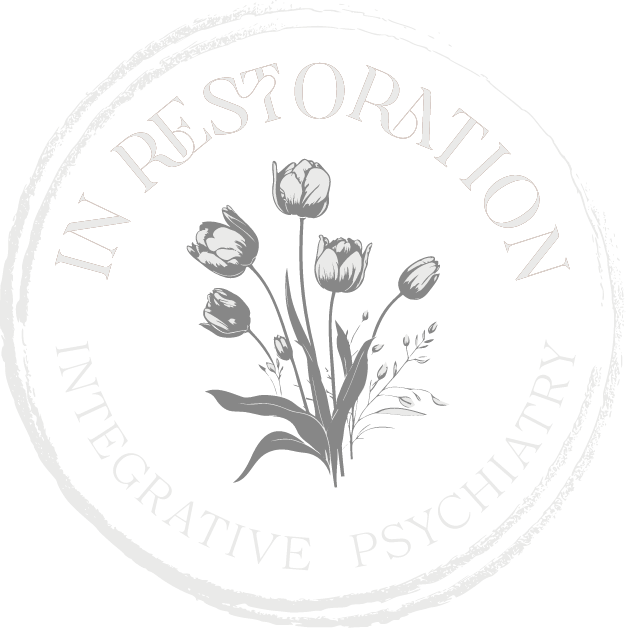“I’m Just Tired of Being Tired.”
Let’s be honest — if we had a dollar for every time a patient walked into my office and said,
“I’m so tired all the time”
we’d all be sipping adaptogen-infused matcha lattes on a beach in the Caribbean together.
If you’re juggling work, family, age related hormone shifts, and trying to drink enough water before 3 p.m. so you’re not up all night peeing — I see you. Fatigue isn’t a personality trait, and it’s not solved with a fourth cup of coffee (although, no judgment if you’re holding one right now).
Let’s dig into why you’re tired and what you can do about it — from a root-cause perspective.
🔍What’s Draining Your Energy Tank?
Fatigue isn’t just “being tired.” It can be a biological, psychological, and/or spiritual SOS. Here are some of the most common causes I see:
1. Hormone Imbalance
- Low thyroid (hypothyroidism)
- Low iron or ferritin (especially in women with heavy cycles)
- Perimenopause or adrenal fatigue from stress
💡 Tip: Ask your provider to check your TSH, free T3, free T4, ferritin, and cortisol.
2. Nutritional Deficiencies
Even if you eat “healthy,” you may be low in key energy nutrients:
- B12 – especially if you’re plant-based or have gut issues
- Vitamin D – the sunshine vitamin we all seem to be missing
- Magnesium – needed for over 300 energy-related processes in the body
💊 My favorites nutrients to supplement:
- Methylated B-complex
- Magnesium glycinate or malate
- Vitamin D3 with K2
3. Chronic Stress & Burnout
Stress hormones like cortisol can be high for years…until your body says, “I’m done,” and everything crashes.
🧘♀️ Refresh Tip: Add a 5-minute “transition ritual” after work — walk around the block, stretch, or just sit in your car in silence and pretend you’re invisible.
4. Gut Health
Poor absorption of nutrients = no energy. Leaky gut, dysbiosis, or even hidden food sensitivities could be the culprits.
🥦 Gut Reset Tip: Try adding fermented foods (like kimchi or kefir), or consider a quality probiotic and digestive enzyme.
5. Sleep Saboteurs
Are you getting sleep…or just lying in bed with your eyes closed thinking about your to-do list?
🛏️ Supportive supplements:
- L-theanine or magnesium glycinate before bed
⚡From Exhausted to Energized: How to Recharge
✅ Fuel first. Don’t skip breakfast and then wonder why you’re snapping at 2 p.m. Your brain needs glucose, protein, and healthy fat.
✅ Move a little. Even a 10-minute walk or stretch helps increase circulation and support energy.
✅ Say “no” more. Fatigue is sometimes your body’s way of saying: “You’re overcommitted and undernourished. Do less.”
✅ Check your labs. Fatigue often has measurable causes — don’t let it be brushed off as “just stress.”
🧪 Curious About Testing?
At our clinic, we offer in-depth lab testing that goes beyond standard panels. Because cookie-cutter care doesn’t cut it when you’re running on empty.
❤️ Final Word from Dr. Stahl
Tired isn’t who you are. It’s a signal. The good news? We can fix it. You deserve to feel sharp, strong, and centered — not like a permanently drained cell phone battery.
Take a deep breath. Take a sip of water. And maybe…take a nap.
You’re worth the recharge.
Warmly,
Dr. Nicole Stahl
Simple blood work can identify deficiencies that may be causing your fatigue. At Cinco Ranch Psychiatry, we believe in testing, not guessing. You can purchase nutrients to address the fatigue, but it is best practice to check actual nutrient levels first, where every dose is tailored to your unique results. Targeted nutrition and personalized supplementation can dramatically improve how you feel and your energy level throughout the day.
To schedule an appointment, give our clinic a call at 713-332-4388.
To purchase supplements mentioned in this article at a 15% discount, follow this link.
How are our supplements different? Click here to find out.
Disclaimer:
The information provided in this blog is for educational and informational purposes only and is not a substitute for professional medical advice, diagnosis, or treatment.
Do not start any new supplements, medications, or treatments without first consulting your healthcare provider. It is always best to be evaluated by a qualified medical professional, including lab testing when appropriate, to guide personalized treatment decisions.
Every individual is different, and what works for one person may not be safe or effective for another.

